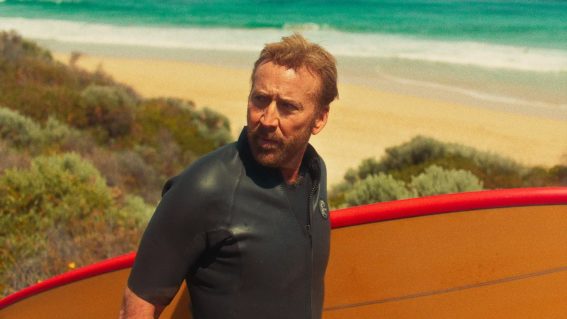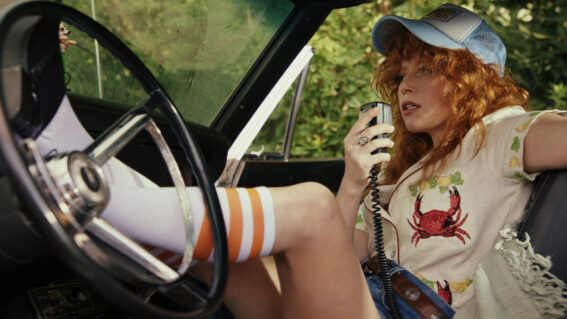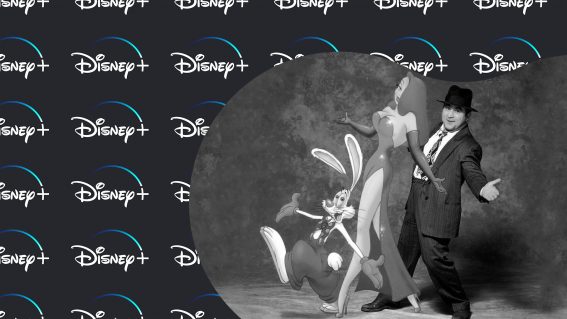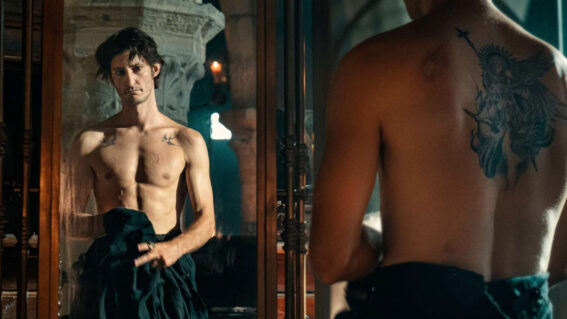Wolf Man is very freakin’ scary, and very freakin’ sad
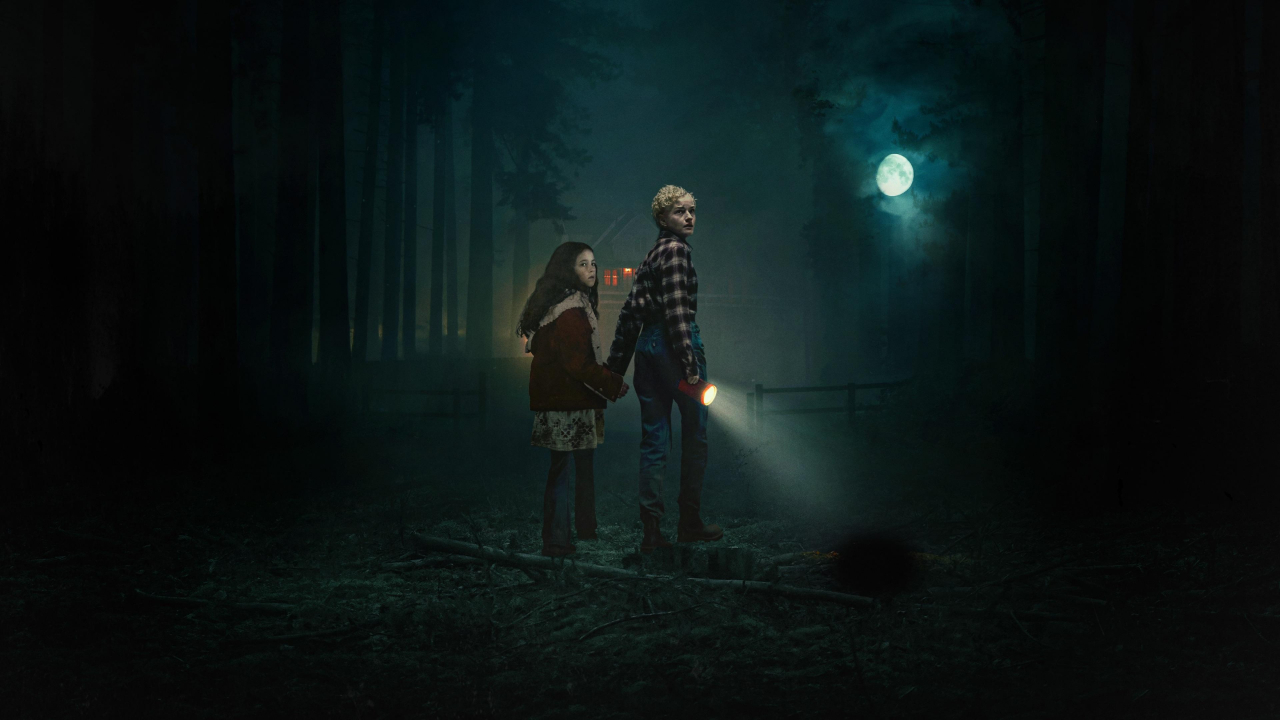
Few werewolf movies get under your skin like Leigh Whannell’s painfully emotional Wolf Man, which subverts the genre to maximize psychological impact, writes Luke Buckmaster.
Werewolf movies are Jekyll and Hyde stories: tales about dealing with the beast inside. Usually, a freshly nibbled protagonist undergoes several transformations and a couple of instances of “shit, what have I done? Was it really me who ripped that guy’s head off and ate his chickens?” The timeline is contracted in Leigh Whannell’s Wolf Man, which mostly takes place over one night in rural Oregon. In this neck of the woods, city slickers must learn to tolerate grubby locals, creaky floorboards, and ancient beasts hungry for their flesh. The narrative revolves around a family of three who hole up in a rickety old house, only to discover the greatest danger might be inside. As in: inside themselves.
This is the second time Whannell has taken potentially schlocky material and sucked all the fun out, creating an air of terrible choking heaviness. His previous film, The Invisible Man, transformed an old moth-eaten series into a shockingly relevant polemic about domestic violence, the real horror coming from a woman not being believed. Wolf Man (which is also a remake—of 1941’s excellent The Wolf Man) is a comparable experience, in that one cannot expect nervous laughter, or giggling at the VFX, or cheering at the sight of a full moon. Whannell strips away the pulpiness and pushes us into a world of emotional pain. When I think about this film, I think about how it feels. In a word: sad. In three words: very freakin’ sad.
Like many horror prologues, the opening moments offer a taste of the menace to come. But more important than bunging on a big ellipsis, and yelling THE BEAST WILL BE BACK, are the emotional dynamics at play. A boy named Blake (Zac Chandler) and his father (Sam Jaeger) are in the great outdoors, hunting deer. The old man tells his son not to eat death cap mushrooms—pretty good advice, I think we can all agree, but it’s conferred in a way that doesn’t suggest closeness or care. There’s something uneasy about their relationship; something distant. On the soundtrack are weird, sloshy, sickly sounds, like something being chewed.
The story jumps ahead 30 years, with Blake (Christopher Abbott) now living in San Francisco with his young daughter Ginger (Matilda Firth) and journalist wife Charlotte (Julia Garner). The latter has a glazed, benumbed look in her eyes. It’s clear that she—in fact all three of them—could do with a reboot, something to lift their spirits, some wind in their sails. Again Whannell shows a knack for getting to the emotional nub of things quickly—boosted by some powerful performances, particularly from Abbott and Garner. You can tell by the way Blake and Charlotte look at each other that there’s been lots of bumps in the road, lots of baggage and heavy feelings.
After receiving news of his father’s death, Blake brings Charlotte and Ginger to Oregon. The trio narrowly survive a car accident, then an attack from the man, or wolf, or wolf man, who caused it. Dad’s old house provides a place of refuge, but then again, maybe this is the one location Blake can never really escape, rooted in the stumps of his psyche. The thing is outside, trying to get in. Then Whannell and co-screenwriter Corbett Tuck change the dynamic, and the real horror begins. That gnarly wound on Blake’s arm…could it be a bite? Soon he starts acting weird. Could he be…turning into something? Something that might not want to do school drop-offs, or go to marriage counselling?
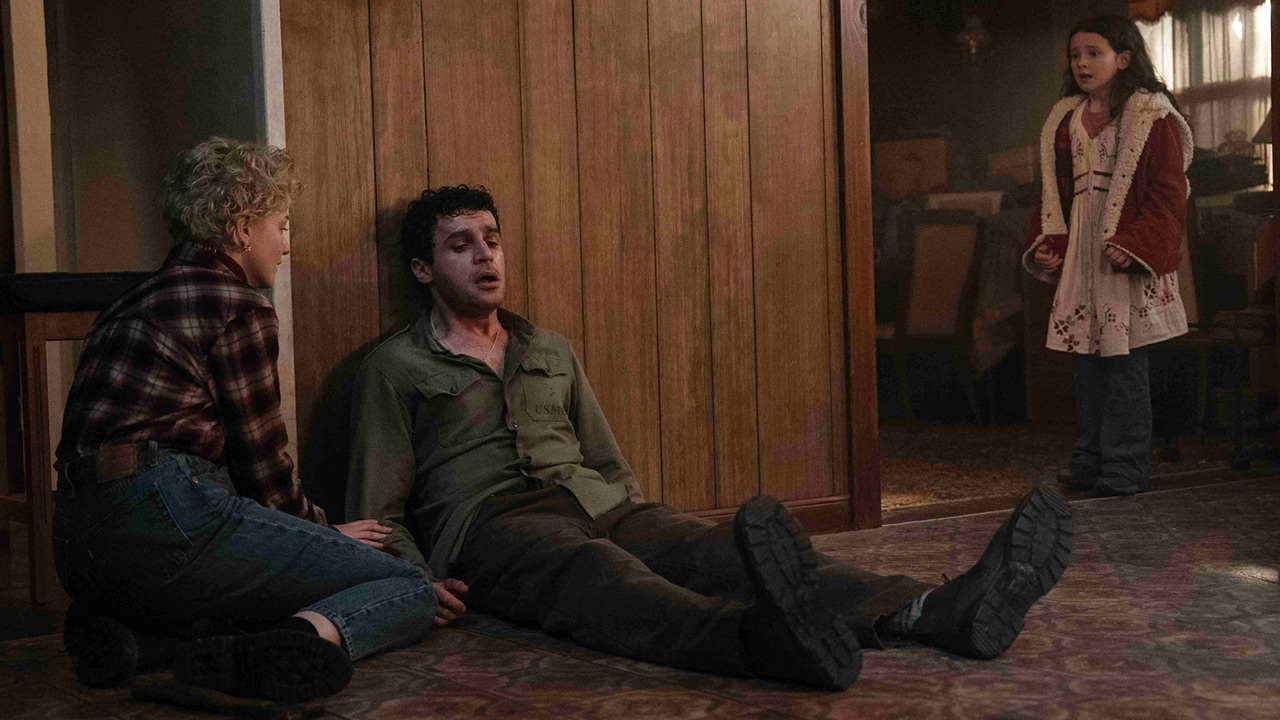
The last time The Wolf Man was remade was in 2010, with Benicio del Toro headlining a straightforward, traditionally gothic-looking production, handsomely varnished but campy and dispensable. This time the tone is “piercing relationship drama” rather than “William Castle movie.” In several scenes Whannell depicts POV moments that illustrate Blake’s transformation. As he exits human experience, colours get distorted and the sound’s warped. But it’s far from a throwaway embellishment: Whannell is making a point about people who’ve stopped listening to each other; people who can no longer be heard.
It’s early days, but Wolf Man appears to have received a tepid response from reviewers, one outlet suggesting it’s “fear-free” and another describing it as “toothless.” I don’t know what film those critics watched. The one I saw was bold, very skillfully made, and profoundly disquieting. It’s partly about not being able to protect your child. But it’s more than that, it’s worst than that; it’s about the horror of realising you’re part of the problem. The child must not only come to terms with the terrors of adult existence, but see them manifest in the face of their beloved. No other werewolf movie has put me in such a state of anguish and despair.





